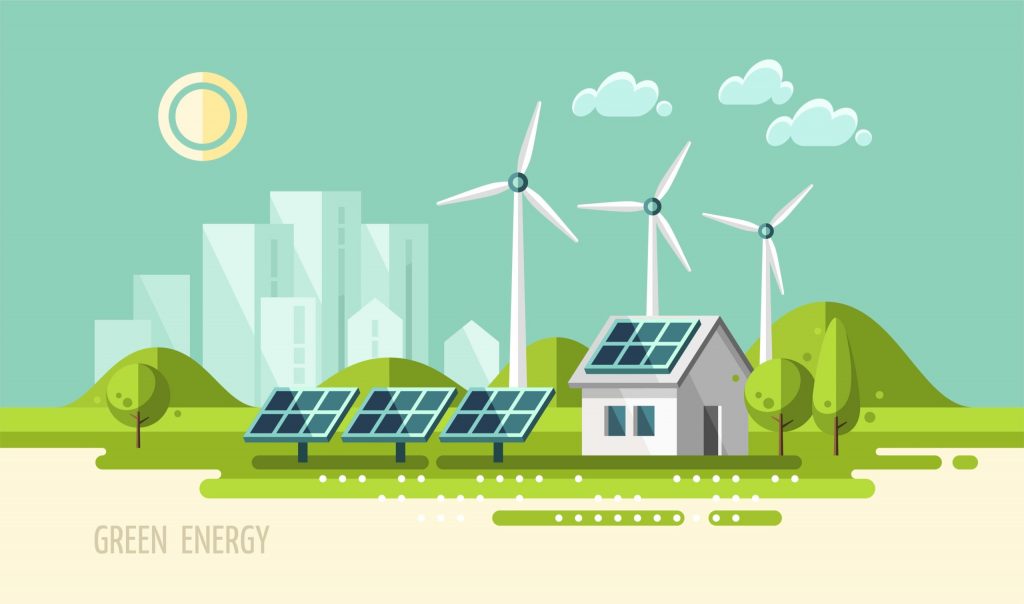Investing in renewable energy has gained momentum as the global demand for clean energy solutions continues to rise. With concerns over climate change, energy independence, and sustainability becoming increasingly relevant, renewable energy investments offer both environmental and financial benefits. In this guide, we will delve into various methods of investing in renewable energy, highlighting opportunities, risks, and strategic approaches to effectively build a portfolio that contributes to a sustainable future.
Understanding Renewable Energy

Renewable energy encompasses energy sources that are naturally replenished on a human timescale. This includes solar, wind, hydroelectric, geothermal, and biomass energy. Investing in these energy sectors not only aligns with ethical considerations and global environmental goals but also opens doors to lucrative financial opportunities. Below, we explore various renewable energy sectors and how they can be integrated into an investment strategy.
1. Solar Energy Investments
Solar energy is one of the most popular forms of renewable energy investment. With decreasing costs of solar technology and efficiency improvements, solar power has become more accessible to investors.
- Publicly Traded Companies: Investing in publicly traded solar companies, such as manufacturers of solar panels or providers of solar technology, offers a straightforward route. Stocks of companies like First Solar or SunPower allow investors to gain exposure to the solar industry’s growth.
- Exchange-Traded Funds (ETFs): Solar ETFs are investment funds that track the performance of solar energy companies. These funds offer instant diversification, which can reduce risk compared to investing in individual stocks. Examples include the Invesco Solar ETF (TAN).
- Solar Real Estate Investment Trusts (REITs): These REITs focus on properties that generate income from solar power installations. They provide a more stable dividend income and mitigate some of the risks associated with individual solar projects.
2. Wind Energy Investments
Wind energy has emerged as another key player in renewable energy investments. Investors can leverage wind power through various avenues:
- Wind Farm Investments: Direct ownership or investment in wind farms can yield lucrative returns, although they typically require higher capital and longer investment horizons. Joint ventures or partnerships in wind project developments can be an opportunity for accredited investors.
- Wind Energy ETFs: Similar to solar ETFs, wind energy ETFs track companies involved in wind energy production. These funds provide a diversified approach to investing in the wind sector without the need for direct management of assets.
- Utility Partnerships: Some utility companies invest in or purchase wind energy assets, providing investors with indirect exposure to the wind energy sector. Investing in utility stocks with a focus on renewable initiatives can also be beneficial.
3. Geothermal Energy Investments
Geothermal energy harnesses heat from the Earth’s core to generate power. It presents a unique investment opportunity with significant potential.
- Geothermal Production Companies: There are several publicly traded companies focused on geothermal power production. Investing in these entities allows investors to participate in the growth of this niche energy market.
- Geothermal Energy Funds: Similar to REITs, funds focused on geothermal energy projects can provide returns through dividends from revenue generated by geothermal electricity production or heating solutions.
4. Bioenergy Investments
Bioenergy is derived from organic materials, such as plant and animal waste. It can be a sustainable income stream for investors.
- Biofuel Companies: Publicly traded biofuel companies produce renewable fuels for transportation and energy. Investments in these companies can align with trends toward decarbonization of the transport sector.
- Biomass REITs: Similar to traditional REITs, biomass REITs focus on properties that use biomass for energy production. These trusts typically distribute income generated from bioenergy operations to shareholders.
5. Green Bonds and Sustainable Funds
Green bonds are fixed-income instruments designed to fund projects that have positive environmental impacts. They can be an appealing option for risk-averse investors.
- Investing in Green Bonds: Governments and corporations issue green bonds, usually to finance renewable energy projects and other sustainable initiatives. These bonds generally offer lower yields than traditional bonds, but they provide an opportunity to support eco-friendly projects.
- Sustainable Investment Funds: Many mutual funds and ETFs now focus on sustainable companies and green initiatives. By investing in these funds, you can align your financial portfolio with environmental goals while benefitting from professional management.
6. Crowdfunding and Community Investments
Crowdfunding platforms allow investors to contribute small amounts of capital towards renewable energy projects. This democratizes investment opportunities for those who may not have significant capital.
- Renewable Energy Projects: Several crowdfunding platforms allow individuals to invest directly in solar or wind projects, often with relatively low minimum investments. These investments can range from funding local solar installations to participating in larger renewable initiatives.
- Community Investment Funds: Some community funds focus on renewable energy or sustainability projects, making an impact at the local level. Investing in these funds provides the dual benefit of financial returns and community support.
Crafting a Renewable Energy Investment Strategy
To effectively invest in renewable energy, consider the following strategic approaches:
- Research and Understand the Sector: Like any investment, gaining a thorough understanding of the renewable energy sector and its various components is crucial. Investigate the technologies, market trends, and regulations that impact the industries you are interested in.
- Define Your Investment Goals: Are you looking for long-term growth, immediate income, tax advantages, or a means of supporting sustainable practices? Clearly defining your goals will help you select the appropriate investment vehicles.
- Assess Your Risk Tolerance: Different renewable energy investments come with varying levels of risk. For example, renewable sector stocks can be more volatile than bonds or REITs. Assessing your risk tolerance will guide your investment choices.
- Diversify Your Portfolio: Diversification across different renewable energy sectors (solar, wind, geothermal, etc.) and investment types (stocks, ETFs, bonds) reduces risk and enhances potential returns. Create a balanced portfolio that aligns with your goals and risk profile.
- Stay Informed: The renewable energy landscape is constantly evolving due to technological advancements and regulatory changes. Regularly follow industry news, trends, and legislative developments to make informed investment decisions.
- Consult with Financial Advisors: Working with an investment professional can provide valuable insights and guidance tailored to your financial situation and objectives. They can help identify suitable opportunities and navigate the complexities of renewable energy investments.
Conclusion
Investing in renewable energy not only represents an opportunity for potential financial gain but also allows individuals to support global efforts towards a sustainable future. As the world increasingly turns to clean energy sources, understanding how to navigate this investment landscape will position you to tap into its growth. By exploring various investment avenues such as stocks, ETFs, REITs, and crowdfunding, and taking a strategic approach guided by your goals and risk tolerance, you can make meaningful contributions to both your portfolio and the planet. In this time of transition towards sustainable energy, seizing the opportunity to invest in renewables can create substantial rewards for investors and facilitate a cleaner, more sustainable future for all.
